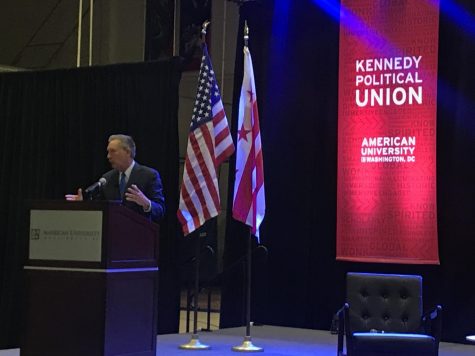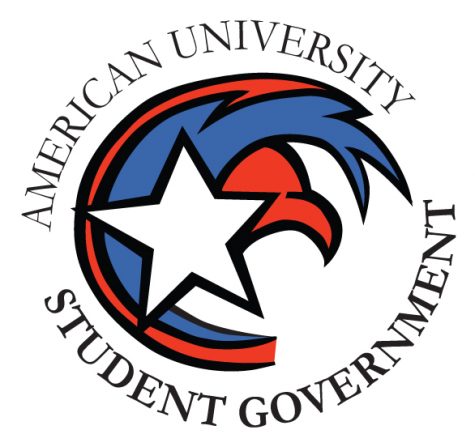Students Contest Tuition Hikes: End-ing Debt
Student debt is at an all-time high, totaling over $1.2 trillion in 2014, according to CNNMoney.
Education Not Debt (END), a student-run campus organization that I am a part of, gathered on Jan. 23 in front of the University Budget Committee (UBC) meeting to protest a tuition increase. They held signs, some of which read, “#IndebtedWonk” and “Education is a Right,” and handed out papers describing END’s mission and the necessity of a tuition freeze to UBC members entering the meeting.
Some of the UBC members thanked students for showing support for a cause they believed in. Others were not as receptive.
“We aren’t asking for handouts now, are we?” asked John Douglass, chairman of the Institutional Budget and Benefits Committee at AU.
END member Jake Stone was upset by the comment.
“I was disgusted and frustrated,” he said. “He made it seem as if we, as students, would ask for unreasonable outcomes, when in fact, all we’re asking is to not be even further indebted. Asking to not be $150,000 in debt is not asking for a handout.”
Freshman Rachel Ussery was also frustrated by Douglass’ comment. “It not only felt like committee members did not stand with students, it felt as though Douglass would not even begin to consider our ideas.”
“Asking to not be $150,000 in debt is not asking for a handout.”
Douglass argues that the University “tries really hard to provide a bargain for students.” However, he believes circumstances make a complete tuition freeze impossible. He cites the former University president Benjamin Ladner, who is accused of spending large sums of University funds for personal use.
“Ever since Ladner, the University has made unfortunate and small miscalculations regarding the budget, which is difficult considering we’re 92 percent tuition dependent,” Douglass said. “And just like any other business, in order to make up for this miscalculation, the growing costs of maintaining campus, and keeping competitive staff salaries that are pegged to the market, it is necessary to increase tuition.”
Junior Audrey Irvine-Broque, one of the first coalition members of END, says increasing tuition will only contribute to the student debt crisis in the US. Irvine-Broque believes the crisis has many facets, including the debate around public versus private loans and the debt bubble.
“[Some] view debt as a form of social control. To others, the crisis is not debt itself, but the reality of higher education, more and more, becoming a tool of inequality.”
“Some people are most concerned with the economy, the job market and the money the Department of Education is making off our student loans,” she said. “Others view debt as a form of social control. To others, the crisis is not debt itself, but the reality of higher education, more and more, becoming a tool of inequality.”
According to AU’s website, the average student graduates $36,000 in debt. Project on Student Debt cites that at George Washington University and Georgetown University, students graduated with $30,881 and $24,064 of debt respectively in 2013, while that number was $12,000 for the University of the District of Columbia.
Despite this, Irvine-Broque refuses to believe that the student-debt crisis will continue. “My biggest hope is that because my generation has felt the firsthand effects of this model of higher education, we will not let it continue along this path.”











